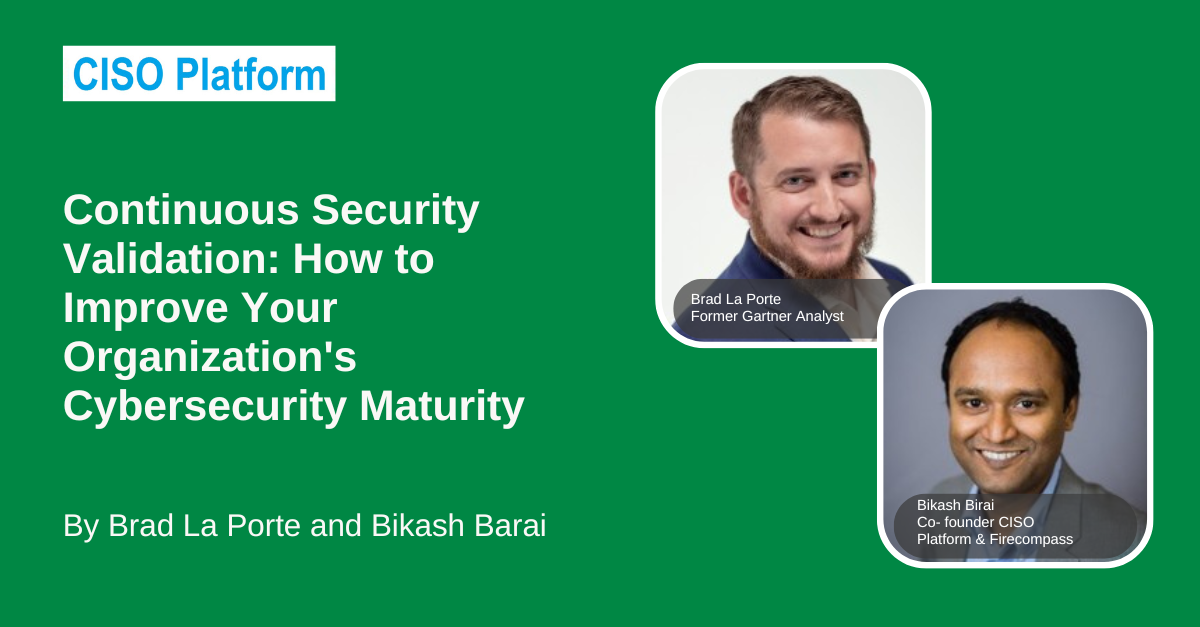Discover how security training and preparedness initiatives play a pivotal role in equipping individuals to recognize and respond to cyber threats effectively. Brad emphasizes the importance of instilling a cybersecurity mindset across all levels of an organization.
Here is the verbatim discussion:
You know that's the the biggest area the other area is uh security training overall just making people aware it's a mindset it's a it's a culture and and identifying if I see a fishing email I need to report it and having a process around that and then and then building it over time um so maybe uh doing a simulated fishing exercise that turns into a uh ransomware exercise so in the you and and just running that for a couple hours um a day for a month or or you whatever period and kind of like a good example that I've have come up over the years is um getting a kind of like an elementary school or or grade school um a grade school get getting a bunch of children ready for um a fire drill so if you remember when you you younger and going through that um you know the fire alarm goes off and then everybody kind of freaks out and don't know what to do and then you know basically as you go through these rehearsals you identify okay well when the alarm goes off we get single file we go outside and then we do we make sure everyone's safe.
Highlights:
Security Training: Brad underscores the need for comprehensive security training programs aimed at raising awareness and educating employees about potential cyber threats. By fostering a culture of vigilance and accountability, organizations can empower individuals to identify and report suspicious activities, such as phishing emails.
Simulated Exercises: Explore the value of conducting simulated security exercises, akin to fire drills, to prepare employees for real-world cyber incidents. Brad highlights the benefits of running simulated phishing exercises that evolve into ransomware scenarios, allowing organizations to assess their readiness and response capabilities.
Building Preparedness Over Time: Drawing parallels to emergency preparedness drills in schools, Brad emphasizes the importance of regular practice and refinement of security protocols. By continuously running simulated exercises and refining response procedures, organizations can enhance their ability to mitigate cyber threats effectively.
Brad underscores the importance of cultivating a proactive cybersecurity mindset through training and preparedness initiatives. By investing in comprehensive security training, conducting simulated exercises, and fostering a culture of awareness, organizations can strengthen their defenses against cyber threats and minimize the risk of security incidents.
Speakers:
Bikash Barai is credited for several innovations in the domain of Network Security and Anti-Spam Technologies and has multiple patents in USPTO. Fortune recognized Bikash among India’s Top 40 Business Leaders under the age of 40 (Fortune 40-under-40).Bikash is also an active speaker and has spoken at various forums like TiE, RSA Conference USA, TEDx etc.
Earlier he founded iViZ an IDG Ventures-backed company that was later acquired by Cigital and now Synopsys. iViZ was the first company in the world to take Ethical Hacking (or Penetration Testing) to the cloud.


Comments